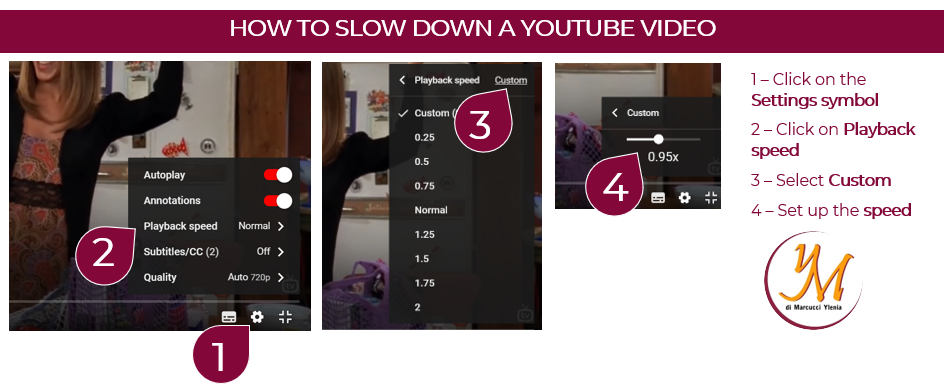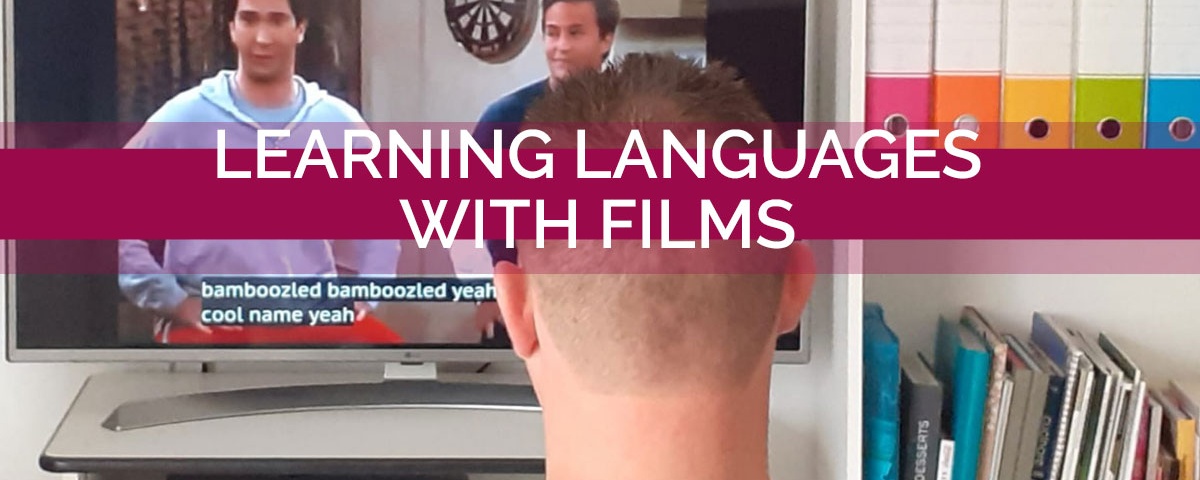
Building simple sentences
22/03/2019
How to expand your vocabulary
07/03/2020W
ouldn't you like to learn a foreign language while sitting on your sofa and binge-watching films or TV series for hours? I know, it would be really great. If it were possible, to become bilingual, you would only need a full HD TV and a subscription to Netflix... but unfortunately the reality is completely different.
Very often my students, both teenagers and adults, ask me if watching movies or their favourite TV series in a foreign language could be a good practice to learn the language or improve their comprehension skills.
Very often my students, both teenagers and adults, ask me if watching movies or their favourite TV series in a foreign language could be a good practice to learn the language or improve their comprehension skills.
L
et me tell you that being glued to the television or the PC screen will not allow you to magically improve your listening comprehension skills. In fact, in order to benefit from this activity, which is pleasant in itself, I suggest you to follow the simple advice I will give you in this post.
1 - Active listening
F irst of all, a language is not learned simply by being exposed to it and by listening to people who speak it (either in person or in a film). In other words, for example, it's not enough to go to London to learn English. That would be too easy! It is undeniable that staying in a foreign country and listening to native speakers is as helpful as watching films in a foreign language. However, we should always consider that being exposed to the foreign language gives us an opportunity to listen to ‘audio material’ and practise your listening skills. Listening must always be active, in other words it should be focused not simply on understanding what is happening around us, but also on recognising words and sentences pronounced by speakers (or by actors in the film) in order to understand both the content and the form of the oral text we are listening to. It goes without saying that we need to keep all sources of distraction away and concentrate as we rarely do when we listen to someone who speaks our native language!
2 - No subtitles, please!
S econdly, watching films in a foreign language is a useful activity to improve comprehension as long as you do not use the subtitles neither in the foreign language nor in your native language. From the very moment the subtitles are present, in fact, you stop actively listening, your eye is captured by the overlaying text and, even if you are very short-sighted and have difficulty reading from a distance, you will practise your written comprehension. If you have an advanced language level, you will also tend to compare what you are hearing with the text of the subtitles (personally, because of my professional deformation, I would not enjoy the film, but I would check if subtitles correspond to dialogues...). That being said, are subtitles useless? I would say that if you want to improve your listening skills, the answer is yes. I would use them only when a scene is really incomprehensible, or when you have guessed that something funny or really important has been said and you must understand it in order to follow the storyline... but then you have to deactivate the subtitles again.
3 - No surprises!
M y advice is to watch a film you have already watched, perhaps in English or in your native language. Knowing the storyline of the film and the names of the characters, or even remembering what happened in a nutshell, will help you to easily understand the story, without having to worry about understanding what is going on. This will allow you to focus only on understanding dialogues. Moreover, some lines of the film might come back to you because you have already watched it in your native language and so you might understand them in the foreign language, which could certainly have been too difficult if you had been watching the film for the first time. After some time, you can also rewatch films that you have already watched in a foreign language, which are now part of your ‘repertoire’. In this case you will focus even more on your listening comprehension and perhaps also on other aspects such as pronunciation or intonation. I agree that you will not enjoy the film or TV series since you already know what will happen, but after all, your goal is to improve your listening comprehension of the language, isnt’ it?
4 - Watch the speed!
R emember that in many cases it is possible to slow down the speed of videos. On the YouTube platform at the bottom right of the video screen, click on "Settings" (gear wheel symbol), then click on "playback speed" and then choose a slower speed by selecting the "Custom" option. Do not slow down the video too much otherwise it becomes even more difficult to understand it (in my opinion, it might be reasonable to set a speed not lower than 0.85x or 0.80x). In the picture below you can see how to slow down a video on YouTube.

I
n order to improve your listening skills, you can watch some scenes from the video or film more than once, at different speeds, perhaps with the help of subtitles for some difficult scenes, even pausing the video and using a dictionary if you have more difficulties than expected.
Do not forget, however, that you are doing an exercise and that the film is just a pretext!
Do not forget, however, that you are doing an exercise and that the film is just a pretext!









